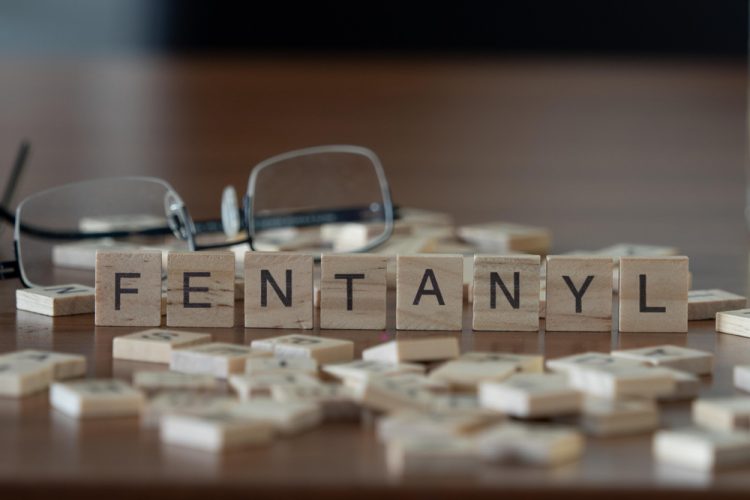
Addiction in the workplace
Addiction is prevalent throughout society, and the workplace is no different -in spite of the many negative ways in which alcohol and drug abuse affect the performance of tasks at work. Functioning addicts become adept at hiding the effects of their usage or explaining away these effects with another rationale. After all tiredness, lack of concentration, irritability, dishonesty, sickness, depression and other hallmarks of substance abuse are symptoms that can be feasibly attributed to any number of other causes.
What is surprising is how endemic the problem is, with 75% of individuals with alcohol or drug disorders in employment. Individuals in employment are actually more likely to use frequently compared to those who are unemployed. And the problem is worsening. In 2019 the rate of workforce drug positivity hit a fifteen-year high with up to 17% of the UK headcount testing positive.
Although job terminations directly related to alcohol or drug use are associated with more severe levels of a substance use disorder, the use of these substances negatively impacts individuals’ job attendance and performance long before more dramatic consequences occur.
A recent UK study showed that 40% of industrial accidents at work are down to substance abuse, with injuries in the workplace up to 1.4 times more likely for those using drugs and alcohol. And there is a bigger impact on job performance, with up to 60% of all poor performance related to drug and alcohol abuse.
A drop in productivity has stark economic repercussions. In the UK the cost to companies is estimated to be over £100 billion every year as error, absenteeism and lower quality and volume of output take their toll. Other studies show that drug and alcohol abuse impacts account for up to 10% of company payroll. And the costs extend beyond the bottom line, as those prone to addiction were also likely to exhibit a suite of other problematic behaviours (dishonesty, theft, assault, harassment, disrespect) that influence job satisfaction and company culture.
The role of employers The Health and Safety at Work Act (HASAWA) 1999 lays down a duty on employers to assess the risk to the safety and health of their employees. Employers could be committing an offence if they knowingly allow employees to work under the influence of drugs or alcohol where their behaviour places them or others at risk. And with disorders on the rise, reaching their highest levels for 15 years in the UK, the intervention has never been more relevant. By implementing a workplace substance use policy to promote the prevention, management and reduction of drug and alcohol-related issues, employers can play a key role in identifying a need for intervention and sponsoring directly the recovery process.
The workplace setting provides captive audiences and ideal venues for occupational health professionals to offer health education for workers and identify individuals with drug and alcohol use problems. One obvious method is through the use of screening programs that can detect
alcohol or other drug use and related impairments in functioning. Screening plays an important role in helping to create safe drug-free workplaces with a recent UK study suggesting organisations without a drug-testing program have a 30-40% higher rate of employee usage. As a contentious topic involving legal, moral and ethical issues, however, there has been pushback.
Critics argue that drug testing is an invasion of privacy and unless the influence of drugs/alcohol directly impact safety -as for certain roles in the construction and transportation industries- people should remain free to consume whatever they choose to in their spare time, particularly as screening does not distinguish between recreational and problem users. Ironically it is in these industries -construction in particular- that the prevalence of substance abuse is highest, and it is difficult to square this criticism against the associated data on accidents in the workplace. Irrespective, with employers increasingly conscious of the risk of malpractice litigation and productivity impact there, has been a 470% increase in UK workplace drug and alcohol testing since 2010.
Identifying the problem is only the beginning, and an employer that values the mental and physical health of their workers has an ethical responsibility to do more. Combining screening programs with resources and assistance programs helps employees with substance use disorders find the treatment and support needed.
An employee assistance program (EAP) is an easy and affordable option for employees in need of assistance, costing as little as £30/employee/year. EAPs offer short-term counselling and assistance in linking employees with a substance abuse problem to local treatment resources, including peer support/recovery groups. In addition, therapeutic work environments that provide employment for drug-abusing individuals who can demonstrate abstinence have been shown not only to promote a continued drug-free lifestyle but also to improve job skills, punctuality, and other behaviours necessary for active employment throughout life.
Urine testing facilities, trained personnel, and workplace monitors are needed to implement this type of treatment. Combining such approaches with activities promoting a healthy lifestyle, and supplementing with education and psychological methods is the best way to reduce addiction-related absence and improve productivity.
Dating back to 2013, fewer than 5% of employees in need of assistance utilised EAPs. Even though they are in place with many companies, employers aren’t suggesting often enough that their employees utilise them. Furthermore, alongside issues of identification and communication, there are problems with the ongoing aftercare needed, with relapse a common concern. Employers need to better understand that drug rehab courses or other assistance programs don’t “cure” individuals of alcoholism or drug addiction. Like any other chronic disease, addiction requires ongoing treatment with 60% of those who go into rehab struggling with issues of relapse down the line.
Employers must also recognize that discipline is not the solution to dealing with addicted workers and that it’s worth the cost of training managers and supervisors on spotting and tackling the signs of abuse, as well as ensuring treatment is covered in health plans. Ideally, they should go beyond the work environment to lobby policymakers for changes to help reduce drug and alcohol dependency and work with social agencies within the communities where their workforce comes from to effect change outside the workplace.
At Ibiza Calm, many professionals from a wide range of careers have had support from our clinic and commonly, work stress and working environments have either directly or indirectly had some level of influence on the individuals addiction and or mental health state. Ibiza calm has also seen a rise in treating those who suffer from stress and burn out with work being a strong influence. Returning to work post-rehab can also be stressful, Ibiza Calm offers aftercare packages included within the treatment, to continue support and continue the upkeep of therapy.
Sources:
Results from the 2011National Survey on Drug Use and Health: Mental Health Findings
http://www.questdiagnostics.
Worker substance use, workplace problems and the risk of occupational injury: a matched case-control study.
Addiction In The Workplace: What You Need to Know
Principles of Drug Addiction Treatment: A Research-Based Guide (Third Edition)
Economic benefit of chemical dependency treatment to employers
The Hidden Cost Of Substance Abuse In The UK
Alcohol and Drugs in the Workplace
Substance Abuse in the Workplace – 5 Important Notes for HR Staff
THE STATE OF UK WORKPLACE DRUG TESTING IN 2019
Managing Drug and Alcohol Misuse at Work
Six steps to address addiction at work
Share this information, choose your platform!
Mood disorders: depression and bipolar
Everyone feels a little low at times; maybe we don’t feel like socialising, find it difficult to get motivated, and just want to stay at home and duvet dive. Particularly if we’ve experienced an emotional or physical upset; and especially …
#AddictionAwarenessWeek2023 – Everybody Knows Somebody
The 3rd annual Addiction Awareness Week, UK, runs from the 28th of October through to 4th of November 2023. This year’s theme is ‘Everybody knows somebody’. Led by the campaign ‘Taking Action on Addiction’; spearheaded by the charity ‘The Forward …
Ibiza Calm is 7!
This week Ibiza Calm celebrates its seventh birthday. The luxury rehab centre – set on the beautiful Spanish island of Ibiza opened on 6th June 2015 and has since gone from strength to strength. The addiction and mental health clinic …
What is Fentanyl? And why is it so dangerous?
Fentanyl has been making the headlines again in recent weeks. The drug first came to worldwide public attention back in 2016 when it was reported that the megastar Prince had died from an overdose. Data published last month by the …









